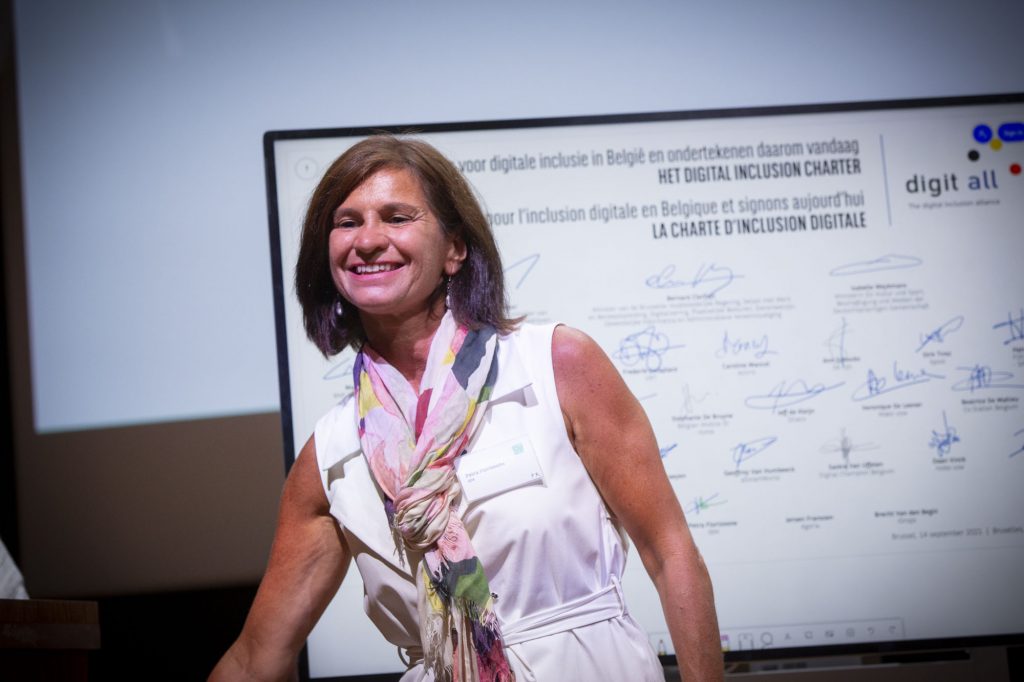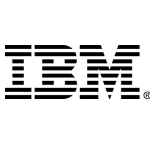Government
IBM, together with 30 organizations, signs the Digital Inclusion Charter
15/09/2021 | Written by: Think Blog Editor
Categorized: Government
Share this post:
“I personally believe that inclusion is a basic human right and should be part of the DNA of every leader. Since a long time, inclusion is one of the core values of IBM. The Digital Inclusion Alliance is for me a great initiative, where we can turn our values into action. We’re all in this together!”
– Petra Florizoone
On behalf of IBM, Petra Florizoone, Business Development Director Benelux, signed the Digital inclusion Charter. The aim of the initiative is to narrow down the digital gap in Belgium by putting digital inclusion higher on the agenda.

Petra Florizoone, Business Development Director, IBM Benelux
Digital Inclusion Ecosystem
DigitAll, with BNP Paribas Fortis and Proximus as main partners, has brought various governments of our country together with about 30 companies, public bodies and social organizations on the topic of digital inclusion. In their effort to narrow down the digital divide in Belgium, the various parties have signed the Digital Inclusion Charter. In an increasingly digital world, they are committed to undertaking concrete actions to fight digital exclusion.
Digital inequality leads to social exclusion. This is the conclusion of a report[1] by the King Baudouin Foundation from June 2020. As many as 1 in 10 Belgian households have no Internet access at home. For low income families, this figure rises to almost 3 in 10. Many people also have no or inadequate digital skills. As many as 40% are at risk of digital exclusion. Finally, the report also points out inequalities in the use of essential services. Some 57% of Belgians with a low level of education, for example, have never used the Internet to submit essential documents to the government. In a time where digital is becoming increasingly important, the digital divide weighs heavily on the social integration of the most vulnerable.
DigitAll is the new name of the Digital Inclusion Ecosystem launched by BNP Paribas Fortis in November 2020. The aim of the initiative, which has already been signed by nineteen companies, eight social organizations and seven public bodies, is to narrow down the digital divide in Belgium by putting digital inclusion higher on the agenda. The ecosystem is currently working on three specific projects: a national awareness campaign to highlight the importance of digital inclusion, an estimation of the user friendliness of digital tools in the form of a digital inclusion index, and a mobile solution to teach digital skills to hard-to-reach target groups.
Digital Inclusion Charter
On September 14 some thirty parties are endorsing the initiative, taking it even one step further. Proximus and BNP Paribas Fortis are bringing the parties together to seal their involvement in the project. They will affix their signatures (in digital form of course) to the Digital Inclusion Charter. By doing so, they affirm their commitment to promoting digital inclusion in Belgium. The Charter facilitates the development of a network around digital inclusion and also contributes to raising awareness of the digital divide.

Digital Inclusion Charter in Brussels
Nine commitments
The Digital Inclusion Charter includes nine concrete commitments to which the signatories subscribe:
- Identify and share best practices to improve digital inclusion.
- Identify constraints to digital inclusion and define common actions to eliminate those constraints.
- Urge the top management of the own organization to own and drive the commitment.
- Improve digital inclusion within the own organization by promoting internal education and sharing actions and progress.
- Promote digital inclusion outside theown organization to increase the number of signatories to the Digital Inclusion Charter and to strengthen its impact.
- Provide support to campaigns that aim to prioritize digital inclusion, as the general public is still insufficiently aware of the digital divide.
- Gradually implement a procedure within the own organization to assess the extent to which digital inclusion is promoted among employees, customers and beneficiaries.
- Undertake actions to increase trust in digital tools, improve the feeling of online safety/security and protect users from potential abuse.
- Monitor the implementation of the Charter and, after three years, evaluate the Charter together with the other co-signatories to take stock of the situation and define possible follow-up actions.
[1] Brotcorne, P. & Mariën, I (2020). Digital Inclusion: Digital Inclusion Barometer. Brussels: King Baudouin Foundation.
Automate work and accelerate business growth
Many companies need help to navigate the rapid changes that define today’s business environment. To improve their responsiveness and flexibility, they are looking for new ways of conducting business, rethinking their processes, and investing in digital transformation projects to increase the robustness of their operations. They rely on business automation technologies to cut out repetitive […]
Sustainability and the technologies enabling the transition
Creating a sustainable future demands significant technological innovation to decarbonize society, restore biodiversity and ecosystem health, foster thriving oceans for sustenance and economic growth, remove atmospheric carbon, transition to sustainable agriculture, and advance eco-friendly cities that align with our vision for a better future. Generative AI has achieved much in recent years and now surpasses […]
Data-driven asset management with IBM Maximo Application Suite and Cloud Pak for Data
IBM has enhanced its Enterprise Asset Management platform, IBM Maximo Application Suite (MAS), with IBM Cloud Pak for Data: a supporting platform which provides a framework for combining a variety of data from different areas of an organization. How does IBM Cloud Pak for Data help organizations gain additional asset management insights from available data? […]



